新华社:(丁隆)解析疫情下的中东停火
(丁隆)疫情下的中东停火:权宜之计还是和平之机?
(来源:《新华社》2020-04-14)
新冠疫情肆虐全球,在战乱和疫情双重打击下的中东再次传出和平的呼声。近日,五名联合国中东地区特使发表联合声明,呼吁◎中东地区冲突各方停火,通过对话化解分歧,共同抗击新冠疫情。
为了全力抗疫,中东地区冲突各方能否实现真正的停火?抗击疫情的现实之需¤,能否为中东带来持久和平的曙光?
疫情扩散
中东冲突呈降⊙温之势
3月23日,联合国秘书长古特雷斯呼吁全球立即停火,以便集中精力进行“我们生命中真正的战斗”。该呼吁得到多个国家响应,过去一段时间以来,战火纷飞的中东地区有冲々突降温之势。
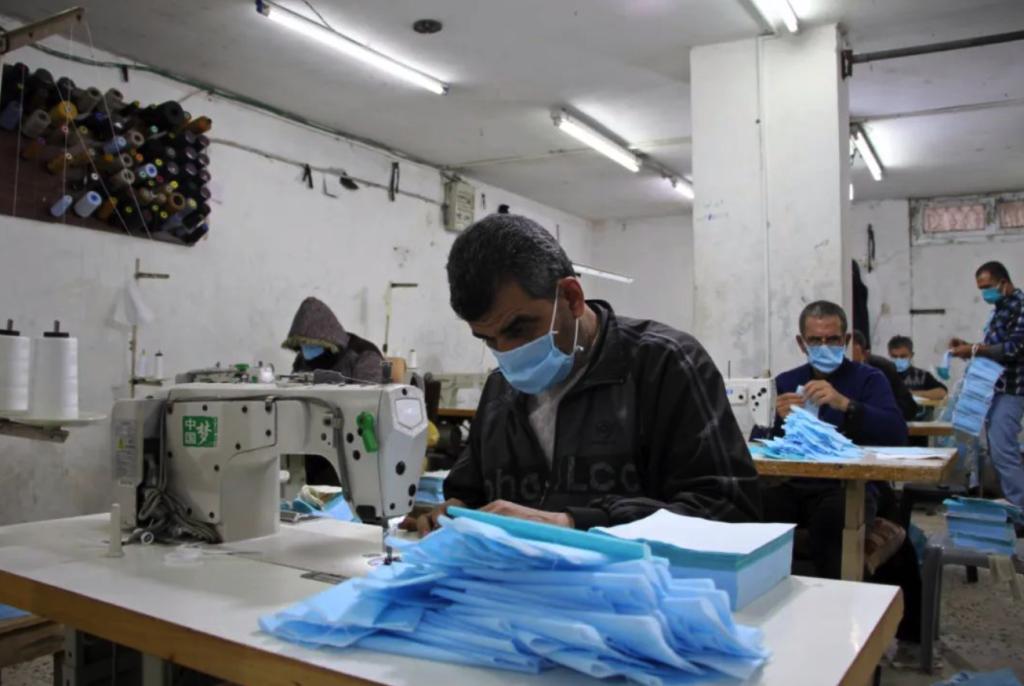
4月13日,在加沙城的一家工厂内,巴勒斯坦工①人在生产口罩。新华社发(里泽克摄)
在加沙,巴以合作抗疫的努力取代了往日的战火连绵。除了互相通报疫情动态,以方还向巴方提供病█毒检测试剂、防护设备,以及医务人员培训。
叙利亚西北部伊德利卜◣的紧张局势也有所缓解。过去一个多月来,由俄罗斯和土耳其达成的停火协议得到落实。
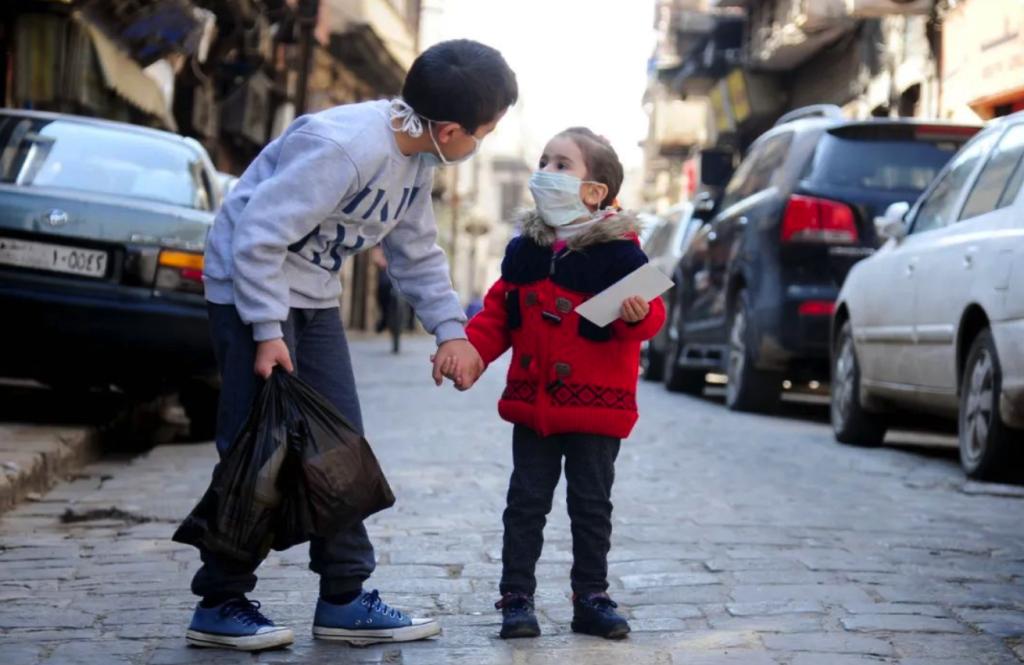
4月12日,在叙利亚大马士革,两名佩戴口≡罩的儿童走在街头。新华社发(阿马尔摄)
对外经济贸易大学国家对外开放研究院研究员丁隆认为,中东战乱国家的停火,既是对联合国呼吁的响应,也是迫于疫情压力做出的现实选择。
“这些国家常年战乱←←,医疗条件差,医护〇人员匮乏,有大量人员密集、缺乏基本生活设施的难民营,一旦疫情扩散,后果不堪设想,”丁隆说,“实施停火是交战方无奈之№举,但终究有利于局势缓和、人民安康,仍然值得称道。”
恩怨难解
还有人没放下武器
10日,医疗系统濒临崩溃的也门发现首例确诊病例。至此,中东地区所有国家╳均出现疫情,但不是每个战场的士兵都放下了武器。
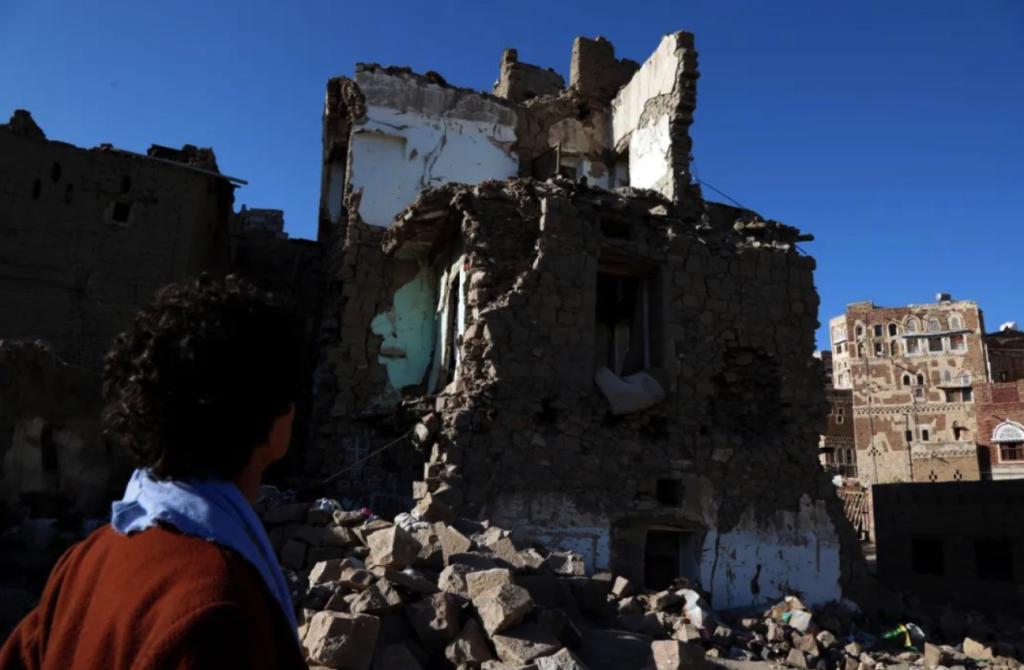
这是4月9日在也门首都萨那拍摄的一处空袭后的建筑废墟▲。新华社发(穆罕默德摄)
联合国发出停火呼吁后,持续五年的也门〓内战出现转机,沙特阿拉伯主导的多国联军宣布从当地时间9日起实施为期两周♀的单方面停火。
然而,也门各地的冲突仍然存在。也门胡塞〗武装控制的马西拉电视台报道,多国联军宣布停火后不久,其战机就在也门的西北部萨达省、北部阿姆★兰省和南部贝达省针对胡塞武装阵地发动空袭。
也门政府则表示,胡塞武装在『西部红海城市荷台达和中部马里卜省等地多次炮击了政府军阵地。
也门军事专家阿里·本·哈迪说,交战双方一面在口头上对联合国的呼吁作出回应,一面∮指责对方破坏停火。尚无迹象表明冲突会停止。
利比亚对峙的民族团结政府和东部武装“国民军”先后表示同意临时停火,但首都的黎波里争夺战前线依然战火汹涌,一些士兵戴上口罩≡打仗。当地已发生针对新冠肺炎隔离医院以及药店、救护车】的袭击,疫情和战火交困〓下,利比亚百姓生活愈加艰难。
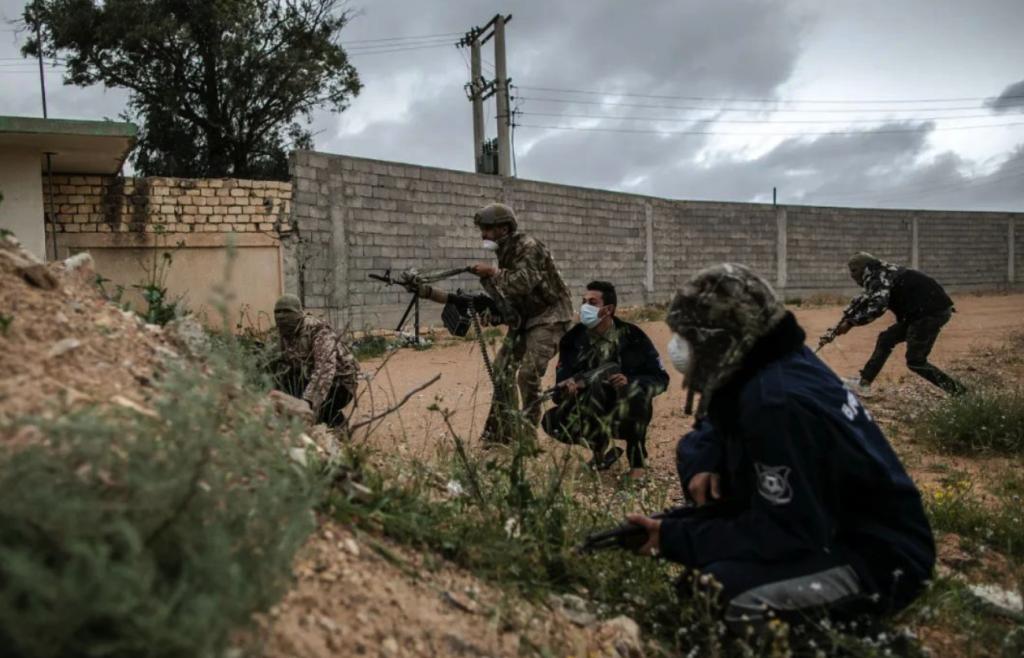
3月25日,在利比亚的黎波里,利比亚民族团结政府武装人员戴着口罩在战斗。新华社发(阿姆鲁摄)
利比亚国际关系教授卡←莱德·莫塔瑟说:“利比亚对战双方声称将为和平停战,然而实际上◥并未停火。我认为利比亚的战事只有在冲突一方完全夺取首都和利比亚西部时,才会真⊙正停止。”
浙江外国语学院国际问题专家马晓霖指出,中东地区的每一对╱矛盾背后都有复杂的历史根源和利益博弈,“这些矛盾只能被搁置和暂缓,而难以被化解,因为各方都不会轻易放弃自己的核心利益”。
和平之窗
要用实际行动开启
丁隆认为,中东〒国家的冲突经年历久、根源复杂,疫情下的停火是权宜之计,导致≡冲突的根源没有因疫情消失。因此,希望疫情解决冲突、实现和平并不现实,但@ 疫情为解决冲突提供了难得的“机会窗口”。
“中东国家和国际社会应倍加珍惜目前出现的短暂∮和平,利用疫情提供的窗口期,推动中东冲突彻底解决。”他说。
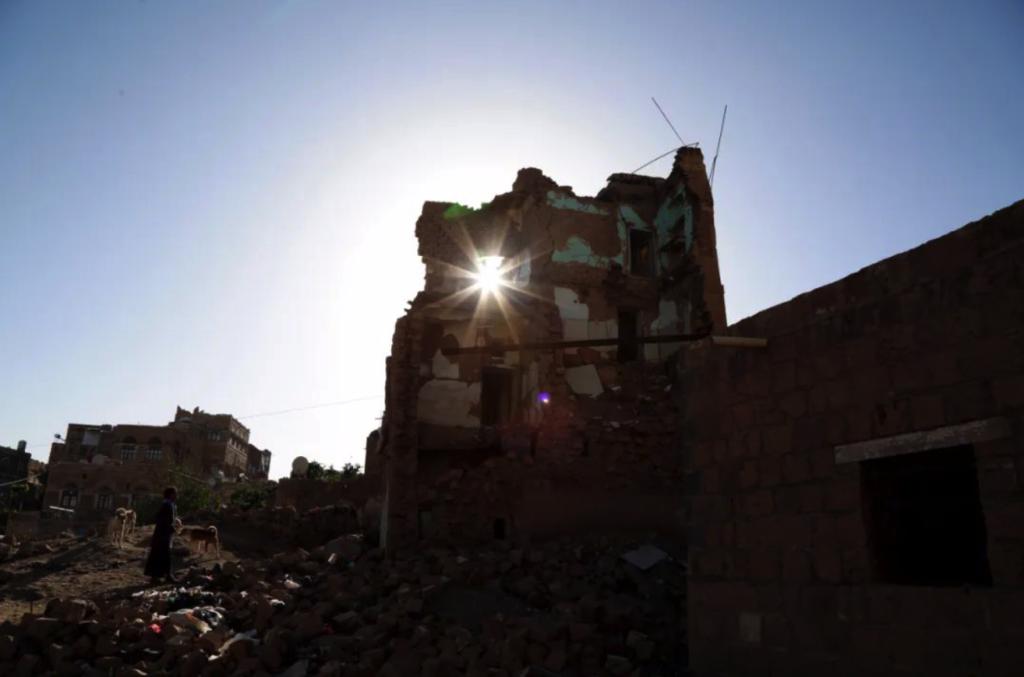
这是4月9日在也门首都萨那拍摄的一处空袭后的建筑废墟。新华社发(穆罕默德摄)
伊拉克巴格达大学政治学◆讲师易卜拉欣·阿梅里表示:“希望中东国家能●举办一个常设论坛,为境内流离失所者、难民,以及所有被战争和匮乏摧毁的人协调人道主义↘准入。”
黎巴嫩政治分析师马哈茂德·拉亚认为,面对疫情在全球蔓延,联合国的停火呼吁意义重大。不过,仅表达意愿还不够,“联合国应发挥更大作用,采取切实行动,保证一些国际▲法律和决议能得到执√行”。
黎巴嫩学者阿德南·布尔吉说,联合国的停火呼吁中并未明确点明需要停火的各方,未要求美国向冲突各方停售武器以及从伊拉克和叙利亚等地撤军,也▃未要求以色列解除对加沙地带的封锁或结束对巴勒斯坦领土占领,因而要将停火真正落实到行动并▓非易事。

利比亚民族团结政府4月6日指责利比亚东部武装力量“国民军”袭击了位于首都的黎波里的一家收治新冠肺炎患者的医院。这是当天在被袭医院拍摄的受损建々筑。新华社发(阿姆鲁摄)
利比亚议会成员穆罕默德·阿布拉说,国际社会必须对施战方更有效地施压,才可能实现和平。
“目前,利比亚战事持续升级,来自土耳其、埃及和阿联酋等国的军事援助并未停止,”他说,“只有支持利比亚战争的国家停止军事支持,利比亚人㊣才会结束战斗。”
News Analysis: Middle East might enjoy peace amid UN ceasefire calls, at least for now
(Source: Xinhua 2020-04-13)
CAIRO, April 13 (Xinhua) -- As the COVID-19 pandemic continues to wreak havoc across the globe, the international community has renewed its call for the warring sides in the Middle East to focus on curbing the disease instead of fighting each other.
In a joint appeal issued on Saturday, five UN envoys to the Middle East urged for a cessation of hostilities across the region, following UN Secretary-General Antonio Guterres' recent call for a ceasefire amid the COVID-19 crisis.
POSITIVE RESPONSE
On March 23, Guterres called for a worldwide ceasefire. Some conflicting sides in the Middle East have responded positively to the UN appeal.
In Yemen, a country suffering from the world's worst humanitarian crisis, a two-week ceasefire proposed by the Saudi-led coalition backing the UN-recognized government went into effect on Thursday.
In the Gaza Strip, rare calm has been observed for over a month now. Though there has been no official ceasefire, Israel and Palestine have put aside their disputes and made joint efforts to fight COVID-19.
In Libya, both the UN-recognized government in Tripoli and the rival eastern-based forces publicly welcomed the UN's ceasefire call.
"The positive responses to the UN's call are also practical arrangements compelled by the pressure of the epidemic," said Ding Long, a researcher at the University of International Business and Economics in Beijing.
"After years of war, these countries are suffering from poor health, lack of medical staff and a large number of crowded refugee camps with no basic living facilities," he said. "Once the epidemic spreads, the consequences will be unimaginable."
So far, both Syria and Libya have reported 25 COVID-19 cases, respectively. Yemen reported its first case on Friday.
NO PEACE IN SIGHT
However, a gap between the declarations and actions remains.
During the past several days, military operations and sporadic attacks have continued between Yemen's government forces and the Houthi rebels in different turbulent areas of the impoverished Arab country.
Ali Bin Hadi, a retired military official and expert, said that there are no positive signs that fighting in Yemen would cease temporarily.
"The warring factions in Yemen only react and respond positively with the ceasefire calls through their media outlets, but on-ground is something else," the Aden-based expert said.
In Libya, conflicts have even escalated amid the coronavirus crisis.
Khaled Al-Montaser, Libyan professor of international relations, said the conflicting parties "declared their readiness for peace to end the war, but actions on the ground confirm that the battles did not stop."
"I think the war will not stop until one of the parties declares its control over Tripoli and the entire west of Libya," he said.
According to Ding, the ceasefire amid the epidemic is "expedient," and will not bring about real peace as long as the decades-long causes of the conflicts remain unresolved.
In a joint appeal, the UN envoys urged all warring parties to translate Guterres' appeal for immediate ceasefires into concrete actions.
They called on all parties to conflicts to engage without preconditions in negotiations to immediately halt hostilities, to sustain existing cease-fires, and to achieve "longer-term resolutions to the persistent conflicts across the region."
MORE TO BE DONE
The joint call for ceasefire is of great significance, and highlights the urgent need to fight COVID-19 with concerted efforts, Lebanese expert Mahamoud Raya said.
However, the international community needs to launch mechanisms to ensure the implementation of the ceasefire, he added.
"I hope the regional countries are invited to hold a permanent forum to heal the wounds left by the conflicts, through facilitating access and humanitarian assistance to internally displaced people, refugees, besieged communities, and all those destroyed by war and deprivation," said Ibrahim al-Ameri, a political expert at the University of Baghdad.
Libyan Parliament member Mohamed Abullah said a ceasefire in the Middle East could be achieved, especially during the novel coronavirus outbreak. Meanwhile, "significant international pressure" must be forced on "regional parties supporting the conflicts, especially in countries like Syria, Libya and Yemen."
附原文链接:
https://mp.weixin.qq.com/s/vbhQCNeJm7cyzU6ufu3N1A
http://www.xinhuanet.com/english/2020-04/13/c_138972120.htm?from=singlemessage&isappinstalled=0
未经允许不得转载:二九年华大学门户 » 新华社:(丁隆)解析疫情下的中东停火
相关推荐
- 王志民教授受聘中国国际文化交流中心“一带一路”金融合作︼研究院特聘研究员
- 公管学院举办“我和我的祖国⊙”新中国成立70周年庆祝活动事迹宣讲会
- 海南研究院院长崔凡教授在阿里巴巴杭州总部举行讲座
- 不惧风雨 勇挑重担 我校研究生学习“习近平总∩书记给北京大学援鄂医疗队全体‘90后’党员回信”
- UIBE俄罗斯国立人文大学孔子学院2019年度理事会顺利召开
- 致敬 | 贸大辅导员战“疫”群像
- CGTN:(高蕾)中国应对全球化经济大潮
- 我校选手获得第八届全国口译◢大赛同传亚军和交传二等奖
- 俄罗斯卫星通讯社:(王志民)为何新冠病毒谣言比病毒本身传播得更快??
- 《经济日报》:(文君 李景瑜)提高科学思维能力 助力高质量发展
- 英语学院召开“不忘初心、牢记使命”主题教育总结会
- UIBE澳大利◣亚维多利亚大学商务孔子学院2019年度理事→会召开
- 公共管理学院本科生党支部组织观看电影《小巷管家》
- 俄新社:王志民参加俄新社金砖国家峰会莫斯科-北京连线
- UIBE希腊雅典商务孔子学院2019年度理事会召开
- 守初心感悟太行精神、担使命传承红色基因:金融学院举办“不忘初心、牢记使命”主题教育专题讲座
- 教育部官网:对外经济贸易大学聚力“五个战场” 坚决打赢疫情防控阻√击战
- 《朝闻天下》:(屠新泉)业内人士:中美达※成第一阶段协议释放积极信号
- 学习强国《现代教育报》:首都高校在行△动 | 共克时艰 汇智聚力 对外经贸举行视频国际会议
- 弘扬宪法精神,厚植↙爱国主义情怀 法学院宪法宣传周系列活动成功举行
新闻公告
- 战“疫”中的4.15:贸大一直在行动 04-16
- 统计学院分团委组织开展全民国家安全教育日学习活动 04-16
- 《中国体育报》:对外经贸大学纪念武术家杨立德 04-16
- 贸大智库战疫高效接力,集智攻关成效显著☉ 04-16
- 新华社:(丁隆)解析疫情下的中东停火 04-16
高考招生
- 对外经济贸易大学2017年招生章程 08-05
- 对外经济贸易大学招生章程(2018年) 08-05
- 对外经济贸易大学2015年招生章程 08-05
- 2016年对外经济贸易大学招生章程 08-05
- 对外经济贸易大学2014年本科招生章程 08-05
- 2014贸大远程秋季招生简章(学历) 08-05
- 对外经济贸易大学2012年招生章程 08-05
- 对外经济贸易大学2013年全日制普通本科招生章程 08-05
- 对外经济贸易大学2009年全日制普通本科招生章程 08-05
- 对外经济贸易大学2011年招生章程 08-05
